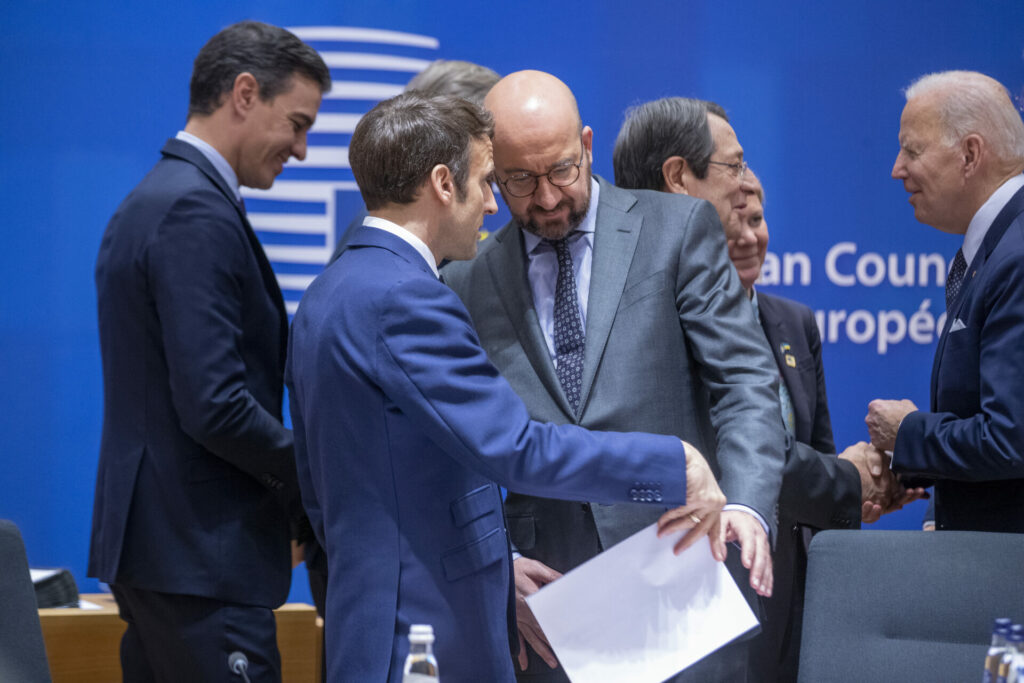On the initiative of French President Emmanuel Macron, the European Political Community (EPC) meets for the first time on Thursday. It brings together leaders from 44 countries on the continent, including those not in the Union such as Turkey, Norway, and Ukraine. It excludes Russia.
During the meeting, which will be held on Thursday in the Czech Republic's capital Prague, EU heads of state will convene with the leaders of countries that supposedly share the bloc’s values on trade, energy and other political priorities, particularly focusing on the EU's response to Russia's war against Ukraine.
"The EPC aims to foster political dialogue and cooperation to address issues of common interest and strengthen the security, stability and prosperity of the European continent," a statement explained.
Thursday's meeting will open with a speech from Ukraine's president Volodymyr Zelenskyy and will include discussion of the Kremlin's escalation of the war, including the illegal referendums held in Russian-occupied areas of eastern Ukraine which it now intends to annex.
Friday will also see an informal European Council meeting take place Prague in which the three most pressing issues facing the EU will be discussed: Russia's war in Ukraine, energy (and the introduction of a cap on the price of gas) and the economic crisis. These topics will also be top on the agenda during the upcoming European Council in Brussels on 20 and 21 October 2022.
On Wednesday, European President von der Leyen sent a letter to the European Council in view of the informal Council meeting in Prague on Friday. In the letter she focused on the energy crisis and the need for a united and common European response, laying out a road map for further action which also involved non-EU countries.
A lack of focus?
The Community's initiators were keen to stress that the so-called "platform for political coordination" will not replace any existing organisation, structure or process and does not aim to create new ones. Yet they were less quick to say just what the functions of the community will be, expressing only vague ideas rather than objectives set in stone.
In previous speeches about the community in May, Macron said the EPC would provide democratic European nations with a new space to discuss "political security and cooperation in the fields of energy, transport, investment, infrastructure the movement of people."
To this end, foreign policy will be the major focal point though "socio-economic programmes which do not require a regulatory alignment" could also be discussed, for instance in the fields of development or transport.
Though the group does include several states hoping to gain full EU membership, others (such as the UK) seek rather to improve relations with the bloc. It is hoped that with regular meetings of leaders, tensions on the peripheries of the EU might be diffused, although some fear that the EPC will be used as a buffer zone by EU members who want to withhold full membership without losing strategic partners.
Related News
- European Commission opens door to temporary EU gas price cap
- EU finance ministers plead for unity after Germany's €200 billion gas 'bazooka'
Ahead of the first meeting, EU foreign policy chief Josep Borrell said the EPC could be a step towards "rethinking the European order beyond the realms of the EU and NATO." The new group will inevitably spark discussion about how to organise European political order.
However, the Centre for European Policy Study (a European think tank) noted "serious limitations to how effective" the EPC can be in the context of Russia’s war against Ukraine. It points to the fact that almost all of the EU’s most powerful allies are located outside Europe (for example, the US).
Fossil fuel anger
It is unlikely that Macron's wish to unite Europe ahead of a hard winter will drive the continent away from fossil fuels. As leaders arrived in Prague, environmental organisation Greenpeace took the opportunity to remind them of the "vulnerability of fossil fuel infrastructure" by erecting a 30-metre mock gas pipeline in the heart of the Czech capital.
Activists called for a rapid shift to break Europe’s dependence on fossil fuels, wherever they come from, and instead invest in long-term energy security.
“As bad as this winter will be, next winter could be worse if governments do nothing to rapidly reduce Europe’s exposure to vulnerable oil and gas supplies," Greenpeace EU climate and energy campaigner Thomas Gelin said.
"It’s revealing that the measure at the top of the summit agenda is a cap on gas prices: this may offer temporary relief to vulnerable households but it’s a blunt tool that does nothing to tackle dependence on gas or long-term energy poverty."
Gelin called it a "disgrace" that almost eight months after Putin’s invasion of Ukraine, a large-scale rollout of home insulation programmes, the EU-wide drive to replace gas boilers with heat pumps, and major schemes to put solar panels on every available rooftop have not been implemented.

